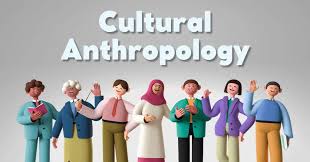Ph.D. in Cultural Anthropology: Introduction, Admission, Registration, Eligibility, Duration, Fees, Syllabus 2024

Introduction:
A Ph.D. in Cultural Anthropology offers an in-depth exploration of human societies, cultures, and behaviors across time and space. This guide illuminates the admission process, eligibility criteria, completion time, career prospects, syllabus overview, internship opportunities, scholarships, and FAQs pertinent to prospective scholars in this captivating field.
Admission Process:
- Research Programs: Identify universities offering Ph.D. programs in Cultural Anthropology, considering faculty expertise, research facilities, and program alignment with personal interests.
- Application Submission: Complete online applications, including transcripts, GRE scores (if required), recommendation letters, statement of purpose, and research proposal.
- Interviews: Shortlisted candidates may undergo interviews to assess research interests, academic background, and fit with the program.
- Research Experience: Prior research experience, demonstrated through academic projects, publications, or fieldwork, can strengthen the application.
Eligibility:
- Educational Background: A master's degree in Anthropology, Sociology, Cultural Studies, or a related field from an accredited institution.
- Academic Performance: Strong academic record, typically with a minimum GPA requirement.
- Research Experience: Demonstrated research experience through thesis work, publications, or participation in anthropological projects.
- Language Proficiency: Proficiency in relevant languages for conducting fieldwork, depending on research interests and geographic focus.
Completion Time:
Ph.D. programs in Cultural Anthropology generally take 5 to 7 years to complete, encompassing coursework, comprehensive exams, dissertation research, and writing. However, completion times may vary based on research progress, fieldwork requirements, and individual circumstances.
Career Opportunities:
- Academic Researcher: Pursue research and teaching positions in universities, colleges, and research institutes, conducting ethnographic studies, publishing scholarly works, and mentoring students.
- Applied Anthropologist: Work in government agencies, non-profit organizations, or consulting firms, applying anthropological insights to address social, cultural, and environmental issues in diverse communities.
- Museum Curator: Curate exhibitions, manage collections, and conduct research on cultural artifacts and material culture in museums, historical societies, or cultural heritage institutions.
- Cultural Resource Manager: Manage cultural heritage sites, preservation projects, and community engagement initiatives, collaborating with indigenous communities, government agencies, and heritage organizations.
- Policy Analyst: Analyze social and cultural factors influencing public policy, advocacy campaigns, and international development projects, contributing to informed decision-making and social justice initiatives.
Syllabus:
- Anthropological Theory: Explore key theoretical frameworks in cultural anthropology, including functionalism, structuralism, symbolic anthropology, post-structuralism, and feminist anthropology.
- Ethnographic Methods: Learn qualitative research methods, including participant observation, interviews, surveys, and archival research, for studying human societies and cultures.
- Regional Studies: Investigate specific geographic regions or cultural areas, focusing on ethnographic case studies, historical trajectories, and contemporary issues affecting local communities.
- Applied Anthropology: Examine the application of anthropological principles and methods to address practical problems in fields such as development, health, education, and environmental sustainability.
- Dissertation Research: Conduct original research under the guidance of faculty advisors, undertaking fieldwork, data analysis, and writing a dissertation contributing to anthropological knowledge.
Internship Opportunities:
- Fieldwork: Gain fieldwork experience through internships with anthropological research projects, cultural organizations, or community-based initiatives, exploring diverse cultural contexts and research methodologies.
- Museum Internships: Intern at museums, cultural centers, or heritage organizations, assisting with exhibition development, collections management, public programming, and educational outreach.
- Non-profit Organizations: Collaborate with non-profit organizations, NGOs, or grassroots groups, working on community development projects, cultural preservation initiatives, or social justice campaigns.
- Government Agencies: Intern with government agencies or international organizations, contributing to policy research, program evaluation, and advocacy efforts related to cultural diversity and human rights.
Scholarships and Grants:
- Institutional Funding: Universities may offer graduate assistantships, fellowships, or tuition waivers to Ph.D. students in Cultural Anthropology.
- Research Grants: Apply for research grants from funding agencies, foundations, or professional associations supporting anthropological research, fieldwork, and dissertation writing.
- Fieldwork Grants: Seek funding from organizations specializing in supporting anthropological fieldwork, ethnographic research, and cross-cultural exchange programs.
- Travel Grants: Apply for travel grants to attend conferences, workshops, or fieldwork sites, facilitating collaboration, networking, and dissemination of research findings.
FAQs:
What is the difference between Cultural Anthropology and other branches of anthropology?
Cultural Anthropology focuses on the study of human societies, cultures, and behaviors, whereas other branches of anthropology, such as biological anthropology and archaeology, emphasize biological evolution, human origins, and material culture.
Can I pursue a Ph.D. in Cultural Anthropology without a background in anthropology?
Yes, candidates from diverse academic backgrounds, including sociology, cultural studies, history, or area studies, can apply for Ph.D. programs in Cultural Anthropology, provided they demonstrate a strong interest in anthropological research and possess relevant skills and knowledge.
How important is fieldwork in Cultural Anthropology research?
Fieldwork is a cornerstone of Cultural Anthropology research, allowing scholars to immerse themselves in the cultural context they study, build relationships with community members, and collect rich, contextual data through participant observation and interviews.
What are some ethical considerations in conducting anthropological research?
Ethical considerations in Cultural Anthropology include obtaining informed consent from research participants, respecting cultural norms and values, maintaining confidentiality, minimizing harm, and ensuring equitable collaboration and representation of diverse voices in research.
How can I contribute to addressing social justice issues through Cultural Anthropology research?
Cultural Anthropology provides tools for understanding social inequalities, discrimination, and power dynamics in society, allowing researchers to advocate for social justice, human rights, and cultural diversity through their work, activism, and engagement with communities.





